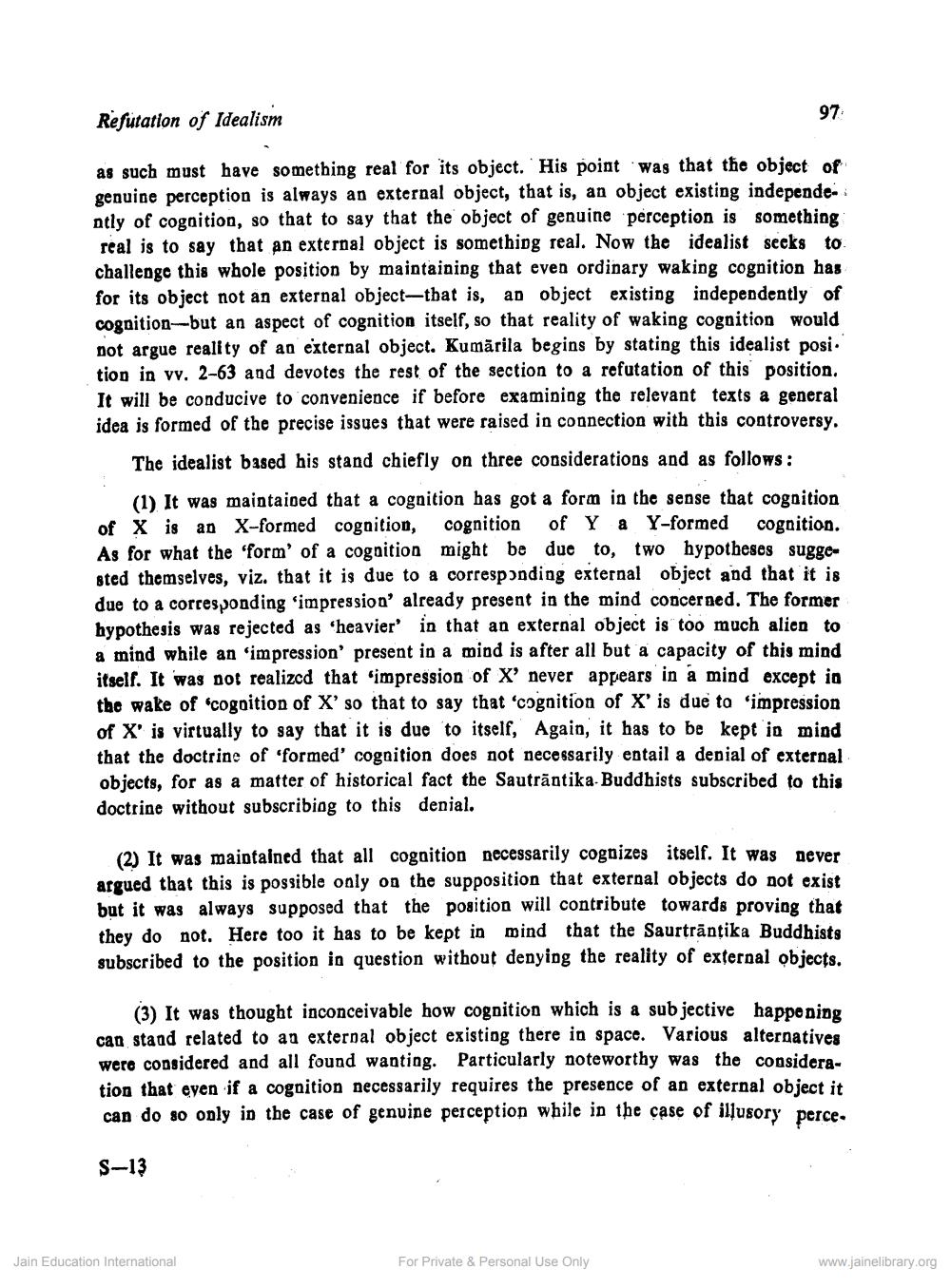________________
Refutation of Idealism
97
as such must have something real for its object. His point was that the object of genuine perception is always an external object, that is, an object existing independeatly of cognition, so that to say that the object of genuine perception is something
real is to say that an external object is something real. Now the idealist seeks to challenge this whole position by maintaining that even ordinary waking cognition has for its object not an external object-that is, an object existing independently of cognition--but an aspect of cognition itself, so that reality of waking cognition would not argue reality of an external object. Kumārila begins by stating this idealist posi. tion in vv, 2-63 and devotes the rest of the section to a refutation of this position. It will be conducive to convenience if before examining the relevant texts a general idea is formed of the precise issues that were raised in connection with this controversy.
The idealist based his stand chiefly on three considerations and as follows:
(1) It was maintaioed that a cognition has got a form in the sense that cognition of X is an X-formed cognition, cognition of Y a Y-formed cognition. As for what the 'form of a cognition might be due to, two hypotheses suggested themselves, viz. that it is due to a corresponding external object and that it is due to a corresponding 'impression' already present in the mind concerned. The former hypothesis was rejected as 'heavier' in that an external object is too much alien to a mind while an impression present in a mind is after all but a capacity of this mind itself. It was not realized that 'impression of X' never appears in a mind except in the wake of 'cogoition of X' so that to say that 'cognition of X' is due to impression of X' is virtually to say that it is due to itself, Again, it has to be kept in mind that the doctrine of 'formed' cognition does not necessarily entail a denial of external objects, for as a matter of historical fact the Sautrāntika. Buddhists subscribed to this doctrine without subscribing to this denial.
(2) It was maintained that all cognition necessarily cognizes itself. It was never argued that this is possible only on the supposition that external objects do not exist but it was always supposed that the position will contribute towards proving that they do not. Here too it has to be kept in mind that the Saurtrāntika Buddhists subscribed to the position in question without denying the reality of external objects.
(3) It was thought inconceivable how cognition which is a subjective happening can stand related to an external object existing there in space. Various alternatives were considered and all found wanting. Particularly noteworthy was the consideration that eyen if a cognition necessarily requires the presence of an external object it can do 80 only in the case of genuine perception while in the case of illusory perce.
S-13
Jain Education International
For Private & Personal Use Only
www.jainelibrary.org




